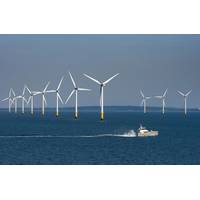Italians Go to polls for Drilling Referendum
Italy went to the polls on Sunday for a referendum on off-shore oil and gas drilling rights, a complex issue that the government hopes voters will shun.
For the ballot to be valid, more than 50 percent of the Italian electorate must vote and Prime Minister Matteo Renzi has urged people to stay away, saying that the referendum is unnecessary and might end up hurting the economy.
It would be a blow to Renzi if substantial numbers did turn out, suggesting voters were ready to snub him just weeks before major local elections. But opinion polls have indicated that a quorum will not be reached.
The referendum focuses on whether Italy should stop renewing offshore drilling licenses within 12 miles (20 km) of the coast. New drilling concessions are no longer being handed out, but the government says old agreements should be kept in play.
Voting runs from 7.00 am (0500 GMT) to 11.00 pm (2100 GMT).
The ballot was proposed by a number of regional assemblies, most of them run by Renzi's own centre-left Democratic Party, which object to drilling platforms because of worries about the environment, as well as the impact on their tourist industries.
Italy imports around 90 percent of its energy needs and successive governments have looked to boost domestic production to reduce dependence on foreign suppliers such as Russia's Gazprom.
There are 69 exploration concessions in Italian waters, most of them gas, the industry ministry says. Of these 44 fall within the 12-mile range, most of them run by Italy's Eni.
If the referendum succeeds, these 44 fields will be shut when their concessions expire, even if they are still workable.
"This not a political referendum, but concerns 11,000 workers, their future and Italy's energy supply chain," Renzi told reporters on Friday.
Environmental watchdog Legambiente and other green groups say domestic oil and gas production is minimal and that continued focus on fossil fuels takes Italy further away from its renewable energy and carbon targets.
Gas production from offshore fields inside the 12-mile area currently accounts for around 3 percent of Italian consumption while oil output in the area makes up just 1 percent.
While the short-term impact of a "Yes" vote would be minimal it would have long-term implications as by 2027 the offshore fields could account for over 20 percent of Italy's oil and gas production, Alessandro Pozzi, an analyst at Mediobanca, said.
The referendum comes at an awkward time for Renzi. An influence-peddling case centred on the country's main landlocked oil producing area triggered the resignation of the industry minister two weeks ago.
Opponents are seeking to use the scandal to bring voters out to test the government's mettle ahead of June local elections, where Renzi's party risks losing control of several cities.
While the prime minister has played down the drilling referendum, he has said he will resign if he loses another referendum slated for October on constitutional reform.
(Additional reporting by Steve Jewkes in Milan. Editing by Jane Merriman)











